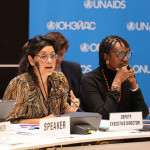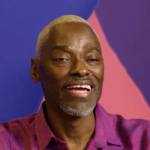Every year on December 1st, our world unites to commemorate World AIDS Day, a significant day to raise awareness, support those affected, and remember those who hare no longer with us. This year’s global theme, ”Let Communities Lead” aims to highlight the critical need for affected communities to lead the way forward, but it also highlights the glaring fact that communities most impacted are often not “allowed” to lead.
For decades, HIV has been one of the most challenging global health crises, affecting millions of lives and communities worldwide. For those same decades, it has been communities who have led the way and advanced the work, often unpaid, with so many who have committed to making an impact going largely unrecognized for their contributions. Working out of their own pockets, unfunded, and unsupported by political leadership, organizations, or industry. In reality, it has always been the communities most affected by HIV that stood at the front lines of this fight.
Moreover, community-led efforts have consistently demonstrated their effectiveness in engaging individuals who might otherwise be hesitant to seek information or support due to fear, cultural barriers, or distrust of healthcare systems. One only needs to look to community-led efforts in Nigeria that increased access to HIV treatment by 64% or the sex worker community in Tanzania reduced HIV incidence rates by half, or the response last summer to the MPOX outbreak where community members went into overdrive creating vaccine access points while governmental agencies scrambled. It has never been clearer to me that leaders from within our diverse communities foster trust, encourage open dialogue, and ultimately lead to better health outcomes.
While we have the evidence that community-led initiatives are incredibly effective, we currently live in a world where policies, and harmful laws are not the only barriers to ending AIDS as a public health threat by 2030, but continued reductions in funding for community-led efforts threaten an unstable environment for communities to lead. This lack of investment by funders can have widespread consequences, including losing the brightest minds in our field to pursue careers in other fields where they are respected, renumerated, and supported.
Supporting community-led initiatives involves not just acknowledging their impact but actively amplifying their voices, providing adequate resources, and advocating for policies that prioritize their needs. By doing so, we take significant steps towards a world where HIV is not just manageable but where every individual receives equitable access to healthcare and support, regardless of who they are, where they live, or their life circumstances.
As we observe World AIDS Day, let us acknowledge that communities have always led our movement. But let us also remember that true progress requires a holistic approach that supports community leadership with systemic changes, significant funding, and creating an enabling environment. This moment also calls for the current generation of those in positions of power within our movement to build capacity, offer mentorship, and make way for community leaders to show us the way to 2030.
It is not enough for us articulate the “Let Communities Lead” mantra, as important as it is to recognize that simple truth borne out over more than four decades of community leadership in the fight against AIDS. We must empower all HIV-affected communities and get out of their way so they may lead us into the future, emboldened by a collective resolve that resonates with “nothing for us, without us.”







Comments
Comments